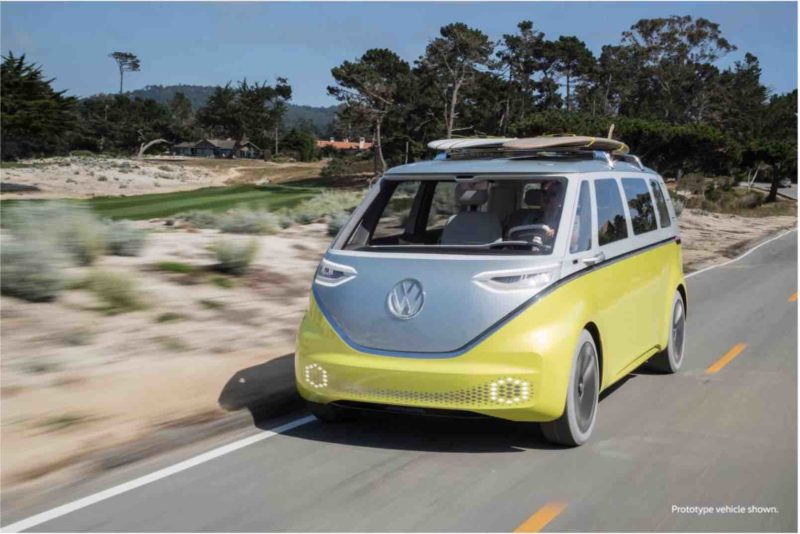By 2030, German car group Volkswagen AG expects to put 22 million electric cars on the road, 50 per cent more than its previous goal.
Despite – or perhaps because of – financial strains due to stricter emissions testing in Europe and falling sales for its three key brands Audi, Porsche and VW, the company has raised its goal from 15 million with the aim to “lead the way” on electric mobility.
Group chief Herbert Diess said at a speech this week, while reporting on the group’s 2018 earnings, that: “The supertanker is picking up speed….we are aligning Volkswagen with e-mobility like no other company in our industry.”
An additional 20 models will also be added as part of that 22 million, the carmaker said in a statement to the press.
With the urgency of countries to reach their Paris Agreement targets by 2030, VW says it is taking its share of the burden with its boosted EV plans.
“The targets of the Paris Agreement are our yardstick. We will be systematically aligning production and other stages in the value chain to CO2 neutrality in the coming years. That is how we will be making our contribution towards limiting global warming.
“Volkswagen is seeking to provide individual mobility for millions of people for years to come – individual mobility that is safer, cleaner and fully connected.
“In order to shoulder the investments needed for the electric offensive we must make further improvements in efficiency and performance in all areas,” said Diess in the statement.
The carmaker, which was only 4 years ago reeling from the “Dieselgate” scandal that revealed it had fudged emissions controls allowing its diesel vehicles to emit 40 times more NOx than allowed under the US Clean Air act, is now seeking to put things right by its push into electric mobility.

In addition to planned models for its flagship electric ID series, the Volkswagen group also detailed an entry family of vehicles that it plans to build on its modular “MEB” electric drivetrain platform.
These will be introduced by 2025 along with the ID “Neo” hatchback, the electric version of the iconic Kombi that will be known as the ID Buzz, the ID Crozz SUV and even perhaps an electric Beetle.

Its other brands are also producing a range of electric vehicles, including Audi’s e-tron, the Porsche Taycan and the Skoda Vision E.
While the arrival of the Taycan and e-tron have already been confirmed for Australia, consumer can also expect to see the ID hatchback, Crozz SUV and Buzz camper within the next three years, says VW Australia’s brand experience manager Kurt McGuiness.
“Absolutely, we are definitely in interested in bringing EVs to Australia,” he tells The Driven.
“We are still a few years off receiving them but will be part of an early international introduction of models around 2021-22.”
With the simpler configuration of Volkswagen’s MEB electric drivetrain, the conversion of its models to right drive make plans to have a presence in both the UK and Australia an easy task, McGuiness says.
Overall, the carmaker has plans to completely decarbonise by 2050 and has committed €30 billion ($A48 billion) towards electrification four the next 4 years alone.

Bridie Schmidt is associate editor for The Driven, sister site of Renew Economy. She has been writing about electric vehicles since 2018, and has a keen interest in the role that zero-emissions transport has to play in sustainability. She has participated in podcasts such as Download This Show with Marc Fennell and Shirtloads of Science with Karl Kruszelnicki and is co-organiser of the Northern Rivers Electric Vehicle Forum. Bridie also owns a Tesla Model Y and has it available for hire on evee.com.au.

